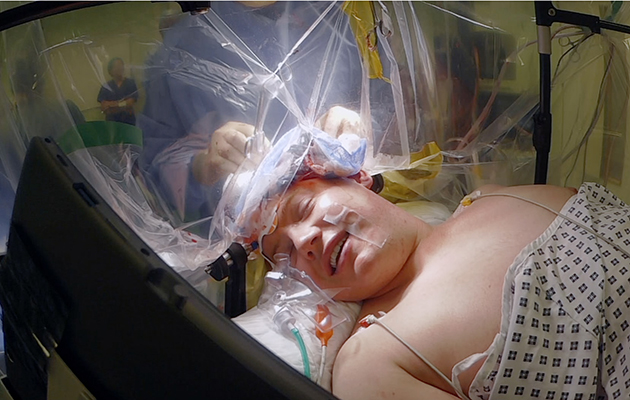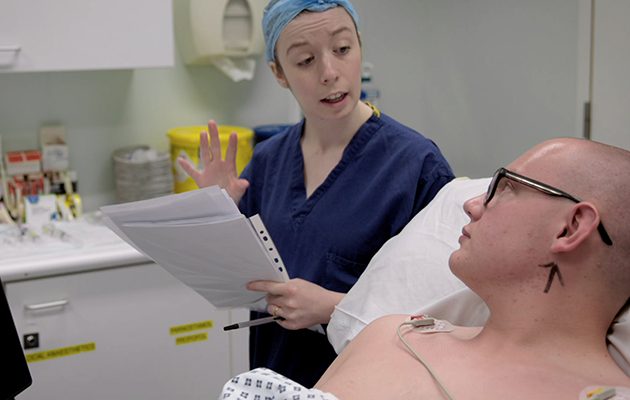Surgeons: At The Edge of Life – BBC2

The latest updates, reviews and unmissable series to watch and more!
You are now subscribed
Your newsletter sign-up was successful
Want to add more newsletters?

ONCE A WEEK
What to Watch
Get all the latest TV news and movie reviews, streaming recommendations and exclusive interviews sent directly to your inbox each week in a newsletter put together by our experts just for you.

ONCE A WEEK
What to Watch Soapbox
Sign up to our new soap newsletter to get all the latest news, spoilers and gossip from the biggest US soaps sent straight to your inbox… so you never miss a moment of the drama!
A new series of BBC2 documentary Surgeons: At The Edge of Life returns to the operating theatres of Queen Elizabeth Hospital Birmingham
A new series of BBC2 documentary Surgeons: At The Edge of Life returns to the operating theatres of Queen Elizabeth Hospital Birmingham
If you’re in any way squeamish, look away.
The riveting Surgeons: At The Edge of Life returns to go behind the doors of Queen Elizabeth Hospital Birmingham’s operating theatres and begins with a close-up look at brain surgery in all its gory detail.
And not your average brain surgery, but one where the patient – Cameron Ray – is awake.
Because Cameron’s tumour is located in the area of the brain responsible for speech, Cameron is encouraged to keep talking while each section of the tumour is probed.
If his speech falters, then that part of the tissue can’t be removed.
The stakes are high – a 50 per cent chance of losing his ability to communicate altogether, a stroke, or even death…
The latest updates, reviews and unmissable series to watch and more!
Cameron, from Lancashire, was training to be an Army medic when he suddenly became seriously ill with suspected meningitis.
But then emergency scans showed something far more serious – a ping-pong ball-sized brain tumour.
‘I just broke down – it was such a shock,’ says the 20-year-old.
‘They couldn’t tell me the stage or the grade of the tumour, but they knew it was big.’
He was offered surgery to remove the tumour and was told he’d have to be awake for much of the nine-hour operation, so his speech could be monitored.
This first episode shows neurosurgeon Ismail Ughratdar cutting through Cameron’s scalp and skull (above), while Cameron is sedated.
At this point, Cameron is woken up and encouraged to talk, while each section of the tumour is painstakingly probed using electrical stimulation.
If his speech is affected, it signals that part of the tissue can’t be removed.
‘I didn’t feel pain, only an itch,’ recalls Cameron.
‘But sometimes I was saying words and nothing was coming out, I was just mumbling. I panicked then that I was never going to speak again.’

It took six weeks for Cameron to recover from the surgery and for his speech to return to normal.
Despite going under the knife, he has since learned that his prognosis is not good.
However, he remains determined to become an Army medic.
‘The Army have been really supportive and they’re going to help me through this,’ he says.
‘Also, how many people can say they’ve been awake during brain surgery? Not many!’
TV Times rating: *****

